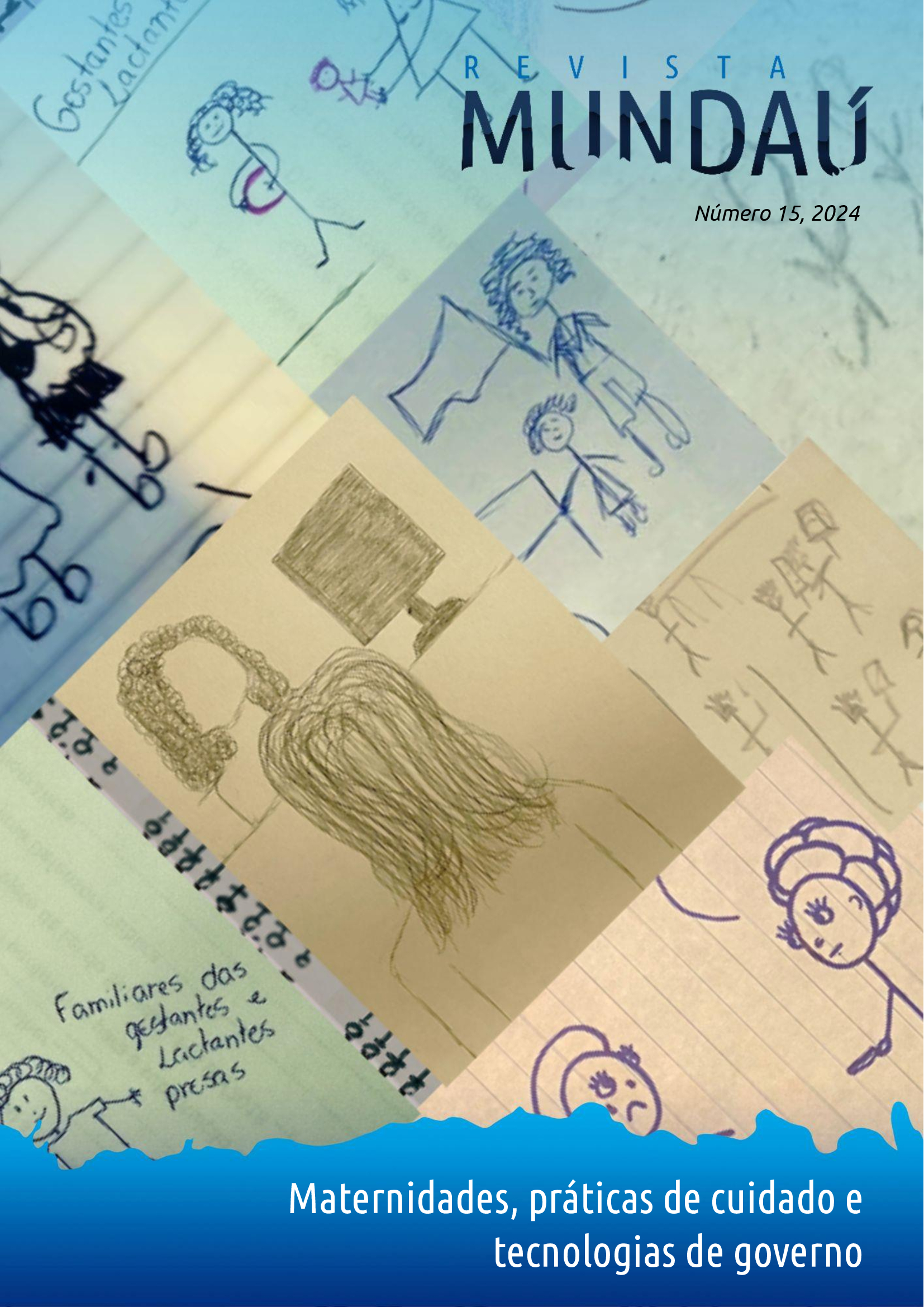The online tarot and transformations of an oracular practice
DOI:
https://doi.org/10.28998/rm.2024.n.15.15231Keywords:
Tarot, Tarologists, Internet, Digital culture, AvatarAbstract
The objective of the article is to understand the transformations that happen in the ritual of reading tarot cards when it is offered online. Tarologists have become digital influencers and have expanded the dissemination of their services, reaching a significantly larger audience through social networks and websites. Through virtual research, transiting now online, now offline, interviews were conducted with tarologists and observations based on a survey of virtual addresses that discuss the tarot and participation in the 4th National Forum of Tarot and Symbology, held in São Paulo in 2015. The results indicate that the online tarot demands flexibility in relation to other ways of communicating, a new relationship with time, with energy mobilization and interpersonal relationships. Thus, in the tarot scene enter discussions about ethics, the use of avatars, limited-service time, possible adaptations of the ritual, impasses in the face of possible technological difficulties arise.
Downloads
References
AMARAL, Leila. Carnaval da Alma: comunidade, essência e sincretismo na Nova Era. Petrópolis: Vozes, 2000.
BOYD, Danah. How can qualitative Internet Researchers define boundaries of their project? A response to Christine Hine. In: MARKHAM, Annette N. e BAYM, Nancy (Ed.). Internet inquiry: conversations about method. Los Angeles: Sage, 2009. p. 2632. https://doi.org/10.4135/9781483329086.n3
COTTLE, Simon. Mediatized rituals: beyond manufacturing consent. Media Culture Society, v. 28, n. 31, p. 411432, 2006. https://doi.org/10.1177/0163443706062910
FRIGERIO, Alejandro. La ¿“nueva”? espiritualidad: ontologia, epistemologia y sociologia de um concepto controvertido. Ciências Sociais e Religião, v. 18, n. 24, p. 209231, 2016. https://doi.org/10.22456/1982-2650.67123
HINE, Christine. Etnografia virtual. Barcelona: Editorial UOC, 2004.
HJARVARD, Stig. The mediatization of religion: a theory of the media as agents of religious change. Northern Lights, v. 6, n.1, p. 9-26, 2008. https://doi.org/10.1386/nl.6.1.9_1
HJARVARD, Stig. Three forms of mediatized religion: changing the public face of religion. In: HJARVARD, Stig; LÖVHEIM, Mia (Ed.). Mediatization and Religion: Nordic Perspectives. Göteborg: Nordicom, 2012. p. 2144.
HJARVARD, Stig. Midiatização: conceituando a mudança social e cultural. MATRIZes, v. 8, n.1, p. 2144, 2014. https://doi.org/10.11606/issn.1982-8160.v8i1p21-44
JUNGBLUT, Airton Luiz. Mercado Religioso e a Internet no Brasil. In: SANTOS, Hermílio (Org.). Debates pertinentes para entender a sociedade contemporânea. Porto Alegre: PUCRS, 2009. p. 139-154.
KUPERMAN, Priscila de Siqueira. Tarot: uma linguagem feiticeira. Rio de Janeiro: Mauad, 1995.
LEACH, Edmund R. Ritualization in man in relation to conceptual and social development. In: LESSA, William Armand; VOGT, Evon Z. (Ed.). Reader in comparative religion: an Anthropological Approach. New York: Harper Row, 1972. p. 333337.
LEITÃO, Débora Krischke. Mercado, coleções e interconexões: algumas pistas para compreender trocas comerciais via internet. Revista Século XXI, v. 1, n. 1, p. 8296, 2011. https://doi.org/10.5902/223667253138
LÉVY, Pierre. O que é o virtual? Rio de Janeiro: Editora 34, 1996.
MAGNANI, José Guilherme Cantor. Mystica Urbe: um estudo antropológico sobre o circuito neo-esotérico na metrópole. São Paulo: Studio Nobel, 1999.
MALINOWSKI, Bronislaw Kasper. O mito na psicologia primitiva. In: MALINOWSKI, Bronislaw Kasper. Magia, ciência e religião. Lisboa: Edições 70, 1984. p. 97153.
MALUF, Sônia Weidner. Mitos coletivos, narrativas pessoais: cura ritual, trabalho terapêutico e emergência do sujeito nas culturas da “Nova Era”. Mana, v.11, n.2, p. 499528, 2005. https://doi.org/10.1590/S0104-93132005000200007
MARINS, Cristina. Internet e trabalho de campo antropológico: dois relatos etnográficos, Ponto Urbe, n. 27, p. 1-27, 2020. https://doi.org/10.4000/pontourbe.9067
MAUSS, Marcel. Sociologia e Antropologia. São Paulo: Cosac & Naify, 2007.
SANTOS, Francisco Coelho dos; CYPRIANO, Cristina Petersen.Redes sociais, redes de sociabilidade. Revista Brasileira de Ciências Sociais, v. 29, n. 85, p. 6378, 2014. https://doi.org/10.1590/S0102-69092014000200005
SCHECHNER, Richard. O que é performance? O percevejo, v. 11, n. 12, p. 110, 2003.
SILVA, Renata Cristina da. Apropriações do termo avatar pela cibercultura: do contexto religioso aos jogos eletrônicos. Contemporânea, ed. 15, v. 8, n. 2, p. 120131, 2010.
SULER, John. The Psychology of Avatars and graphical space in multimedia chat communities or: How I learned to stop worring and love my Palace Props. In: BEIßWENGER, Michael (Ed.). Chat-Kommunikation. Language, interaction, and sociality in computer mediated communication. Perspectives on an interdisciplinary research area. Stuttgart: Seiten, Gebunden, 2001. p. 137.
TAVARES, Fátima Regina Gomes. Mosaicos de si: uma abordagem sociológica da iniciação no tarot. 1993. Dissertação (Mestrado em Sociologia e Antropologia) Programa de Pós-Graduação em Sociologia e Antropologia, Universidade Federal do Rio de Janeiro, Rio de Janeiro, 1993.
TAVARES, Fátima Regina Gomes. Tornando-se Tarólogo: Percepção "Racional" versus Percepção "Intuitiva" entre os Iniciantes no Tarot no Rio de Janeiro. Numen: Revista de estudos e pesquisa da religião, v. 2, n. l, p. 97123, 1999.
TURNER, Victor. The anthropology of performance. New York: PAJ Publications, 1987.
VILHENA, Luís Rodolfo. O mundo da astrologia: estudo antropológico. Rio de Janeiro: Zahar Editor, 1990.
FONTES
ASTROCENTRO. http://astrocentro.com.br/consultas-1270/thema/especialidade-tarologia. Acesso em: 3 nov. 2022.
CLUBE DO TARÔ. http://www.clubedotaro.com.br/site/index.asp. Acesso em: 3 nov. 2022.
IMPÉRIO CIGANO. http://www.imperiocigano.com.br/atendentes/. Acesso em: 3 nov. 2022.
LEITURA TAROT. http://leituratarot.com/.Acesso em: 3 nov. 2022.
NAIFF, Nei (Org.). Fórum Aberto Tarô on-line: quais os prós e contras? In: 2º Encontro Nacional de Tarô e 19º Encontro da Nova Consciência. Campina Grande, 14/02/2010. http://www.youtube.com/watch?v=Lsp1XJAEnoM. Acesso em: 12 nov. 2022.
NAIFF, Nei (Org.). 4º Fórum Nacional de Tarô e Simbologia: O Tarô e o Mundo Digital. São Paulo: Citibank, 21/03/2015.
ORÁCULOS WEB. http://oraculosweb.com.br/capa/index.asp?gclid=Cj0KCQiAtqL-BRC0ARIsAF4K3WFsKCHfYYPj3gsbVSKqpcmfETxiotZNUBnoWcWFXOz0H-oz5A1m_x4aAskCEALw_wcB. Acesso em: 10 nov. 2022.








